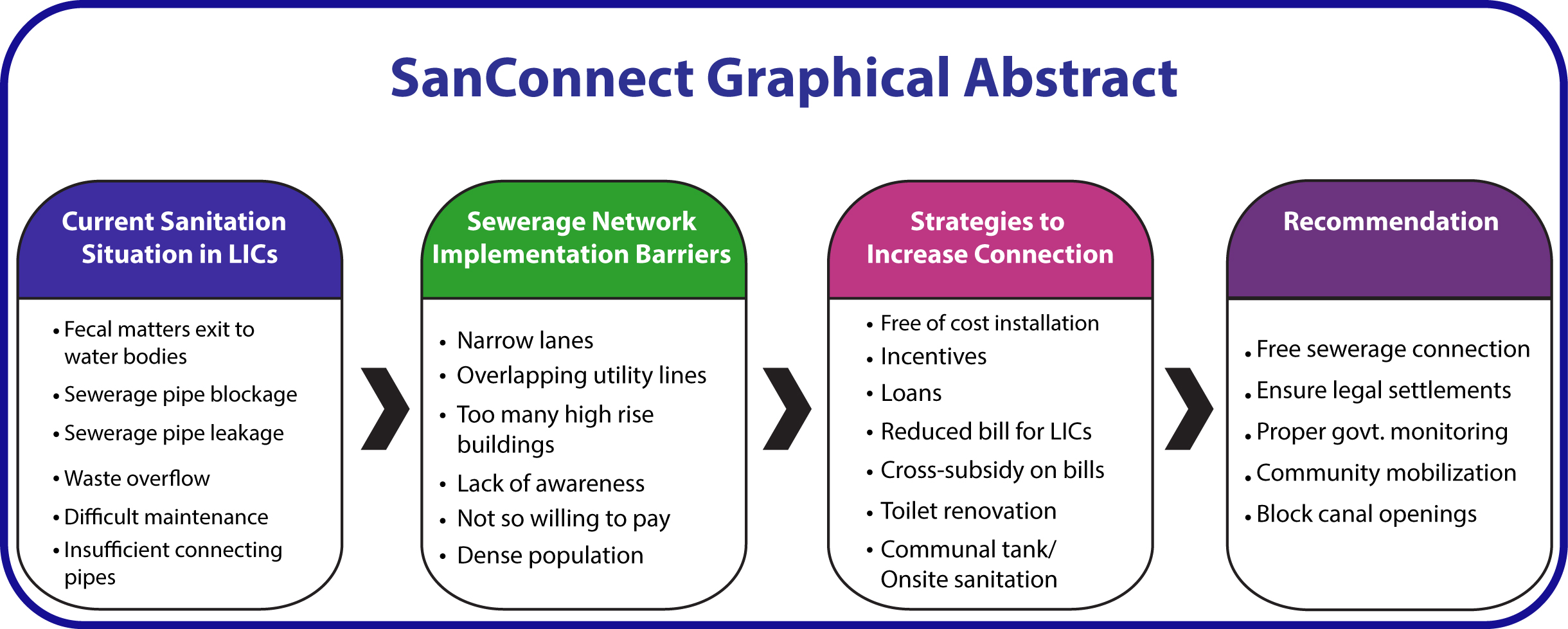Globally, 2.2 billion urban residents are living without safely-managed sanitation, the majority of whom are slum residents. To improve the situation, Dhaka Water Supply and Sewerage Authority (DWASA) is implementing the Dhaka Sanitation Improvement Project (DSIP), mostly funded by the World Bank. This study assessed the feasibility of connecting low-income communities (LICs) within the proposed sewerage network by 2025. We conducted nine key-informant interviews from DWASA and City Corporation, and 23 focus-group discussions with landlords, tenants and Community Based Organisations (CBOs) from 16 LICs near the proposed catchment area. To achieve connections, LICs would require improved toilet infrastructures and have to be connected to main roads. Construction of large communal septic tanks is also required where individual toilet connections are difficult. To encourage connection in LICs, income-based or area-based subsidies were recommended. For financing maintenance, respondents suggested monthly fee collection for management of the infrastructure by dividing bill equally among sharing households, or by users per household. Participants also suggested the government's cooperation with development-partners/NGOs to ensure sewerage connection construction, operation and maintenance and prerequisite policy changes such as assuring land tenure.

